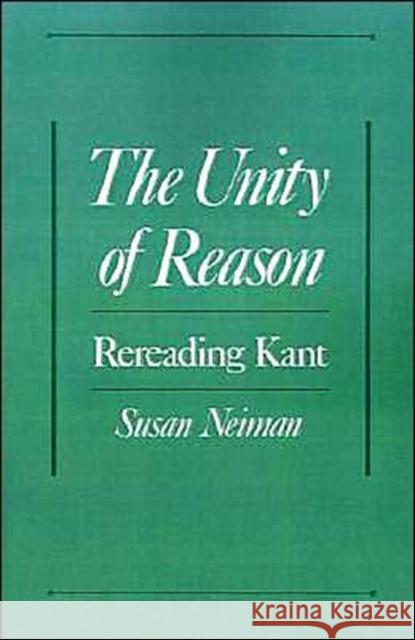The Unity of Reason: Rereading Kant » książka
The Unity of Reason: Rereading Kant
ISBN-13: 9780195113884 / Angielski / Miękka / 1997 / 224 str.
The Unity of Reason is the first major study of Kant's account of reason. It argues that Kant's wide-ranging interests and goals can only be understood by redirecting attention from epistemological questions of his work to those concerning the nature of reason. Rather than accepting a notion of reason given by his predecessors, a fundamental aim of Kant's philosophy is to reconceive the nature of reason. This enables us to understand Kant's insistence on the unity of theoretical and practical reason as well as his claim that his metaphysics was driven by practical and political ends. Neiman begins by discussing the historical roots of Kant's conception of reason, and by showing Kant's solution to problems which earlier conceptions left unresolved. Kant's notion of reason itself is examined through a discussion of all the activities Kant attributes to reason. In separate chapters discussing the role of reason in science, morality, religion, and philosophy, Neiman explores Kant's distinctions between reason and knowledge, and his difficult account of the regulative principles of reason. Through examination of these principles in Kant's major and minor writings, The Unity of Reason provides a fundamentally new perspective on Kant's entire work.











